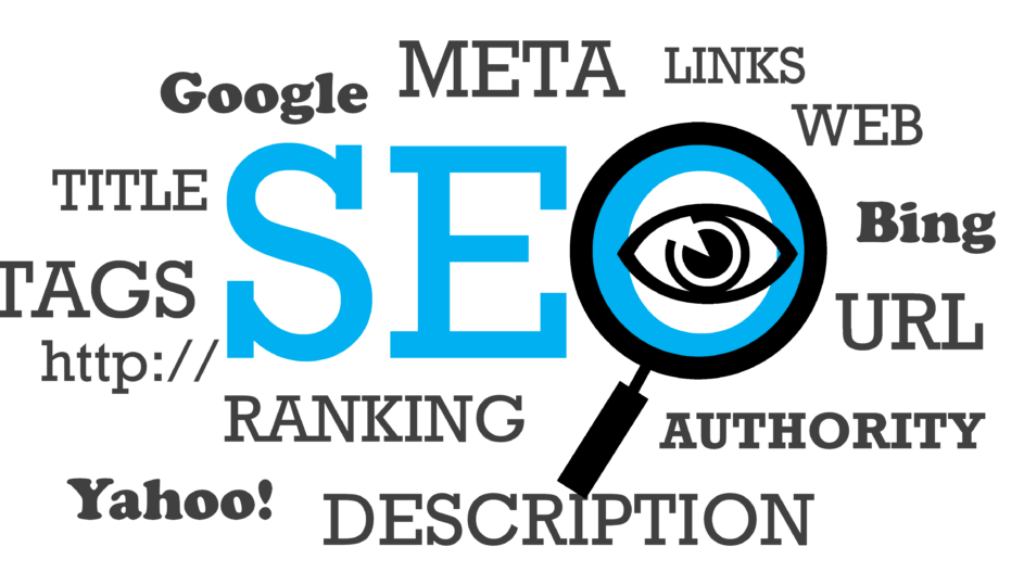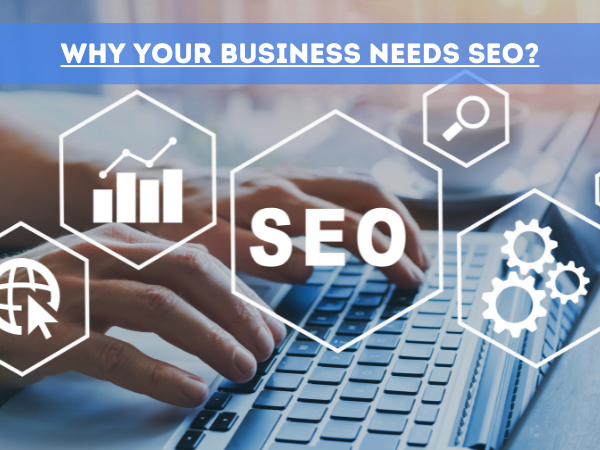Owning a business with a lot of goals and aspects to look into isn’t easy nowadays. Digital marketing is a big part of the way your business faces the journey to success. Part of the many strategies to look into in digital marketing is SEO. Do not underestimate the importance of SEO to your business. Let us dive into what SEO is? Is it beneficial, how effective is SEO?
What is SEO?
Search Engine Optimization (SEO) is a proceeding to increase website visibility in Google and Bing as a user intent searches for something. SEO entails keywords, content, and images articulately gathered to drive more traffic and gain leads. As your business advance in ranking and visibility of your business in search engines, the higher chances of getting the attention and converting prospects to clients.
Getting the right team or an expert in working your goals and campaigns helps you get a clear roadmap of how SEO will drive qua; it results in your business. An SEO specialist runs campaigns, identifies the target audience, proper keywords, and business goals.
SEO is not a one-time marketing campaign; it takes months to achieve and a wise investment to get a keyword rank #1 in your area and surpass your competitors. There are many marketing channels, and investing with SEO is more effective when adding the value that search engine optimization can provide. SEO is an essential part of marketing your service or products to customers.
Is SEO one of the best investments in the marketing strategy of your business?
As technology advancement brings many changes towards global economic and business success, SEO is the future of your business. Google and Bing allow its bot to crawl every website and work their algorithm on how they foretell your credibility in search engines.
Business owners are busy getting revenue and acquiring sustainability; SEO, on the other hand, SEO works to get leads and ranking factors among its competitors. Should we say that your business will not survive without SEO? To convince you is not a facade; your business cannot do without SEO.
Let your brand speak through Canadian Web Designs.
We have helped a lot of clients spread their brand awareness to their desired target market. SEO can help you get the recognition you deserve from your audience and gain trust in the online world.
SEO helps your business achieve;
- Increase Visibility
- Unlimited Traffic
- Marketing
- Brand Awareness
- Competitors
- Success
Whether you own a shop or an online startup business, SEO’s organic traffic is your key to the global market, brand awareness, customer experience, and a return of investment. If you don’t know where to start and how it should be, talk to our SEO specialist, and we will create the roadmap for your SEO campaign.

Understanding SEO: Basics and Beyond
Search Engine Optimization (SEO) is a strategic process used to increase a website’s visibility in search engine results pages (SERPs). At its core, SEO aims to enhance both the quality and quantity of website traffic, as well as exposure to your brand, through non-paid (also known as “organic”) search engine results. Unlike immediate, paid advertising, SEO is about understanding what people are searching for online, the answers they are seeking, the words they’re using, and the type of content they wish to consume. Knowing the answers to these questions allows you to connect to the people who are searching online for the solutions you offer.
The Components of SEO: On-page, Off-page, and Technical SEO
- On-page SEO: This involves optimizing individual web pages to rank higher and earn more relevant traffic in search engines. On-page refers to both the content and HTML source code of a page that can be optimized, as opposed to off-page SEO which refers to links and other external signals. It includes strategies like keyword optimization, high-quality content creation, optimizing headings and HTML tags (title, meta, and header), and images.
- Off-page SEO: Off-page SEO focuses on increasing the authority of your domain through content creation and earning backlinks from other websites. It’s a long-term and ongoing process. It includes strategies like link building, social media marketing, guest blogging, and influencer marketing.
- Technical SEO: Technical SEO refers to the actions performed to help search engines crawl, interpret, and index your website more effectively (what is known as “crawling” and “indexing”). It includes strategies like improving site speed, making your site mobile-friendly, creating a structured data markup, and ensuring that your site architecture is coherent and logical.

The Role of SEO in Digital Marketing
SEO as a Crucial Component of a Holistic Digital Marketing Strategy
SEO is not an isolated tool but a fundamental part of a holistic digital marketing strategy. It integrates with other marketing efforts such as content marketing, social media marketing, and email marketing, creating a comprehensive approach to online visibility. Effective SEO strategies not only improve website visibility and searchability but also enhance user experience, which is vital for attracting and retaining customers. By improving your site’s SEO, you increase your online presence and create more opportunities for conversion and engagement.
Comparison with Other Digital Marketing Channels (e.g., Social Media, PPC)
While SEO is an organic way to improve your online visibility, other digital marketing channels like social media marketing and Pay-Per-Click (PPC) advertising play different but complementary roles:
- Social Media Marketing: This is about building brand awareness and engaging with your audience on various social platforms. While it doesn’t directly impact SEO, it helps in promoting your brand and content, which can lead to more search queries and potentially more backlinks.
- PPC Advertising: PPC is a model of internet marketing where advertisers pay a fee each time one of their ads is clicked. It’s essentially a way of buying visits to your site, rather than attempting to “earn” those visits organically. While SEO focuses on earning site traffic through unpaid or free listings, PPC lets you buy traffic through paid search listings. PPC can provide immediate results, whereas SEO is more of a long-term strategy.

Key Benefits of Implementing SEO in Your Business
Increased Website Traffic: The Impact of SEO on Organic Search Visibility
One of the primary benefits of SEO in your business is the significant increase in website traffic. By optimizing your site for search engines, you improve your visibility in organic search results. This is crucial because the higher you rank on search engine results pages (SERPs), the more likely potential customers will click through to your site. SEO focuses on using relevant keywords, creating quality content, and building a user-friendly website, which helps in attracting a larger audience. This increased visibility directly correlates with higher traffic volumes, bringing more potential customers to your doorstep.
Improved User Experience: How SEO Enhances Website Usability and Customer Satisfaction
SEO is not just about search engines; it’s also about providing a seamless and positive experience for your website visitors. Google has increasingly considered user experience as a ranking factor. This includes website speed, mobile-friendliness, ease of navigation, and the quality of content. By optimizing your site for these factors, you not only improve your rankings but also enhance the usability of your site. A well-structured, clean, and uncluttered website compels a casual visitor to stay longer, thereby decreasing bounce rate and increasing page views.
Higher Conversion Rates: The Role of SEO in Converting Visitors into Customers
A website that is optimized for search engines ranks higher in search results, which leads to increased visibility and credibility. This credibility, combined with a good user experience, tends to convert visitors into customers. SEO targets users who are actively searching for your products and services online, which results in more targeted traffic and, ultimately, higher conversion rates as these visitors are more likely to be interested in what you are offering.
Building Credibility and Trust: SEO’s Influence on Brand Authority and Online Reputation
SEO helps build the foundation of a clean, effective, and user-friendly website that offers a good user experience, which is crucial in building brand trust and credibility. The higher your website ranks in search results, the more credible it appears to potential customers. Additionally, features like backlinks from reputable sites, optimized on-page content and elements, and a machine-learning signals are all crucial to establishing authority. This trust and credibility do not happen overnight – they are earned and built over time through quality SEO practices.
SEO and Consumer Behavior
Understanding the Modern Consumer’s Online Journey
The modern consumer’s journey is no longer a linear path but a complex maze of online searches, website visits, and social media interactions before making a purchase decision. Understanding this journey is critical in aligning your SEO strategy with consumer behavior. Consumers turn to search engines at various stages of their journey, from initial awareness to consideration and final decision-making. Each stage requires different information, and your SEO strategy should cater to these various needs.
How SEO Strategies Align with Consumer Search Behaviors and Preferences
SEO strategies must be aligned with how consumers search and what they are looking for. This involves using the right keywords, creating content that matches their search intent, and ensuring your website appears in relevant search results. For example, if consumers are in the awareness stage, they might be searching for information or answers to a problem. Your SEO strategy should, therefore, focus on informative content and keywords that address this. As they move to the consideration and decision stages, your focus should shift to more product or service-specific keywords and content. By aligning your SEO strategies with consumer behavior, you can attract more relevant traffic, provide valuable information at each stage of their journey, and guide them toward making a purchase decision.
Long-term Value of SEO
SEO as a Long-term Investment with Compounding Benefits
SEO should be viewed not as a one-time setup but as a long-term investment in your business’s digital presence. The key to understanding the value of SEO lies in its compounding effect over time. Initially, the focus is on building a solid foundation — optimizing your website, creating quality content, and establishing a presence in search engines. As these efforts gain momentum, they lead to increased visibility and traffic, which further enhances your site’s authority and ranking. This cycle continues, often resulting in exponential growth. Unlike paid advertising which stops yielding results once you stop paying, SEO continues to deliver benefits long after the initial investment, making it a cost-effective strategy in the long run.
Case Studies or Examples of Businesses That Have Successfully Leveraged SEO
- E-commerce Success Story: An e-commerce company specializing in eco-friendly products began focusing on SEO by optimizing their product pages, writing informative blog posts, and using strategic keywords relevant to their niche. Over a year, they saw a 150% increase in organic traffic and a significant boost in sales.
- Local Business Transformation: A local bakery implemented local SEO strategies, including optimizing their Google My Business listing, gathering positive reviews, and creating content about local events and offerings. This resulted in a 70% increase in local foot traffic and higher visibility in local search results.
These examples illustrate how businesses, regardless of size or industry, can experience substantial growth by implementing effective SEO strategies.
SEO in the Age of AI and Emerging Technologies
The Impact of AI and Machine Learning on SEO Strategies
The advent of AI and machine learning has revolutionized SEO in several ways. Search engines like Google now use these technologies to better understand user intent, provide more relevant search results, and even anticipate future search queries. AI algorithms analyze vast amounts of data to identify patterns and preferences, making search results more personalized and accurate. For SEO practitioners, this means adapting strategies to focus more on user intent and less on traditional keyword stuffing. Content quality, user experience, and relevance have become paramount, as AI can now differentiate between genuinely useful content and content created solely for ranking purposes.
Staying Ahead of the Curve: Adapting SEO Tactics in a Rapidly Changing Digital Landscape
To stay ahead in this AI-driven landscape, it’s essential to keep abreast of the latest trends and adapt your SEO strategies accordingly. This includes:
- Focusing on creating high-quality, relevant content that addresses the needs and questions of your target audience.
- Ensuring your website offers an excellent user experience, with fast load times, mobile optimization, and intuitive navigation.
- Using data analytics and AI tools to understand user behavior and preferences, and to tailor your SEO strategy to these insights.
- Keeping up-to-date with the latest search engine algorithms and adjusting your tactics to comply with these changes.
Common SEO Myths Debunked
Addressing Misconceptions About SEO and Its Effectiveness
Myth 1: SEO Is a One-Time Effort
SEO is an ongoing process. Search engines frequently update their algorithms, and competitors continually adjust their strategies. Continuous effort in SEO is required to maintain and improve rankings.
Myth 2: Keywords Are All That Matter in SEO
While keywords are essential, they’re just one part of the puzzle. Search engines now prioritize user experience, content relevance, and site authority just as much as keywords.
Myth 3: More Links Always Mean Better Ranking
The quality of backlinks is far more critical than quantity. A few high-quality, relevant links are worth more than numerous low-quality links.
Myth 4: SEO Is All About Ranking
High rankings are desirable, but what matters more is attracting the right traffic that converts into customers.
Clarifying the Difference Between SEO Myths and Best Practices
Best Practice 1: Focus on User Experience
Contrary to the myth that SEO is all about keywords and links, providing a great user experience is a best practice. A well-designed, easy-to-navigate, and fast-loading website will keep visitors engaged longer.
Best Practice 2: Create Quality Content Regularly
Content is king in SEO. Regularly updating your site with valuable, original content is far more effective than stuffing it with keywords.
Best Practice 3: Use Keywords Strategically
Instead of overusing them, place keywords strategically and naturally within content, titles, and meta descriptions.
Getting Started with SEO: Tips for Businesses
Basic Steps to Start Implementing SEO in a Business
Step 1: Understand Your Audience
Identify who your target audience is and understand their needs and search behaviors. This knowledge will guide your SEO strategy.
Step 2: Perform Keyword Research
Use tools like Google Keyword Planner to find keywords that are relevant to your business and audience.
Step 3: Optimize Your Website
Ensure your website is mobile-friendly, loads quickly, and is structured logically. Optimize your content with the chosen keywords.
Step 4: Create Quality Content
Develop a content strategy that addresses your audience’s needs and questions. Create blog posts, articles, and other forms of content regularly.
Step 5: Build Quality Backlinks
Focus on acquiring backlinks from reputable websites in your industry. This improves your site’s authority and ranking.
Step 6: Monitor and Adjust Your Strategy
Use tools like Google Analytics to track your website’s performance. Be prepared to adjust your strategy based on these insights.
When to Consider Professional SEO Services
- Lack of In-House Expertise: If you do not have the expertise in your team, it might be more effective to hire professionals.
- Complexity of Your Website or Industry: Some industries are highly competitive or have specific challenges that professional SEO services are better equipped to handle.
- Scaling Your Business: If you’re looking to scale up significantly, professional SEO services can help you navigate the complexities of aggressive digital marketing strategies.
- Need for Specialized Skills: Aspects like technical SEO, link building, and content strategy might require specialized skills that a professional service can provide.

Final Thoughts
The critical role of SEO in modern business success cannot be overstated. It is an essential component of any comprehensive business strategy, crucial for connecting with audiences, enhancing user experiences, and establishing a trustworthy online presence. SEO’s importance in increasing website visibility, driving traffic, improving user engagement, and boosting conversion rates makes it much more than a marketing tactic—it’s a strategic investment with long-term benefits.
Work with the best SEO team in Toronto
Level up your digital footprint to expand your brand awareness on online platforms. Our professional web designers and developers are ready to discuss your concept. Call Canadian Web Designs at 647-492-5513 or email us at sales@canadianwebsitedesigns.ca to get your free quote. You can also visit our website get-in-touch us page.